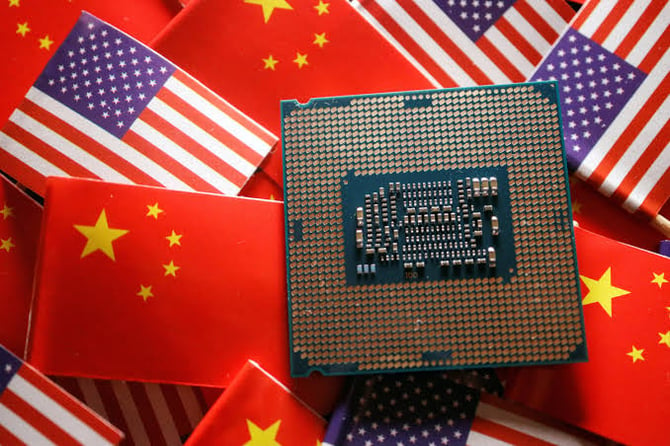China Escalates Chip Trade War by Limiting Gallium, Germanium

A trade war between China and the United States over the future of semiconductors is heating up after Beijing imposed export controls on two crucial raw materials, gallium and germanium. These materials are essential for the global chipmaking industry.
Last October, the Biden administration introduced export controls that prevented Chinese companies from purchasing advanced chips and chip-making equipment without a license.
This was seen as a way to safeguard national security interests, given the importance of chips in various sectors, like smartphones, self-driving cars, advanced computing and weapons manufacturing.
However, China viewed this as an early strike in a trade war intended to stymie its growth in the chipmaking industry. China retaliated by initiating a cybersecurity investigation into Micron, a US chipmaker.
The probe resulted in the company being banned from selling to Chinese firms involved in critical infrastructure projects. Now, Beijing has gone a step further by announcing additional restrictions on gallium and germanium.
What does this mean for me?
According to the US Geological Survey, China is the top producer of gallium and germanium worldwide. It accounts for 98% of global gallium production and 68% of refinery production of germanium.
Market watchers are concerned that these export controls will curtail the artificial intelligence-fueledtechnology boom. With a dwindling supply of these key raw materials, prices will rise and supply chains will stall, putting up barriers to the further growth of many sectors that rely on advanced chips.
More News
.webp)
Japan’s Rate Shift Is Rippling Through Global Bond Markets
1 week ago

China’s Growth Engine Stalls as Consumers and Investors Pull Back
1 week ago

Egypt’s Recovery Gains Traction as Household Pressure Lingers
2 weeks ago

OECD Warns AI and Tariffs Will Test the Global Economy
3 weeks ago

Zero Tariffs, Higher Drug Bills as US and UK Reset Pharma Trade
3 weeks ago

Catastrophe Bonds Go Global as Climate Risk Meets Yield Hunting
4 weeks ago
.webp)
Canada Shields Steel and Lumber Industries From Tariffs
1 month ago

Trump Drops Selected Tariffs in Response to Inflation Pressures
1 month ago